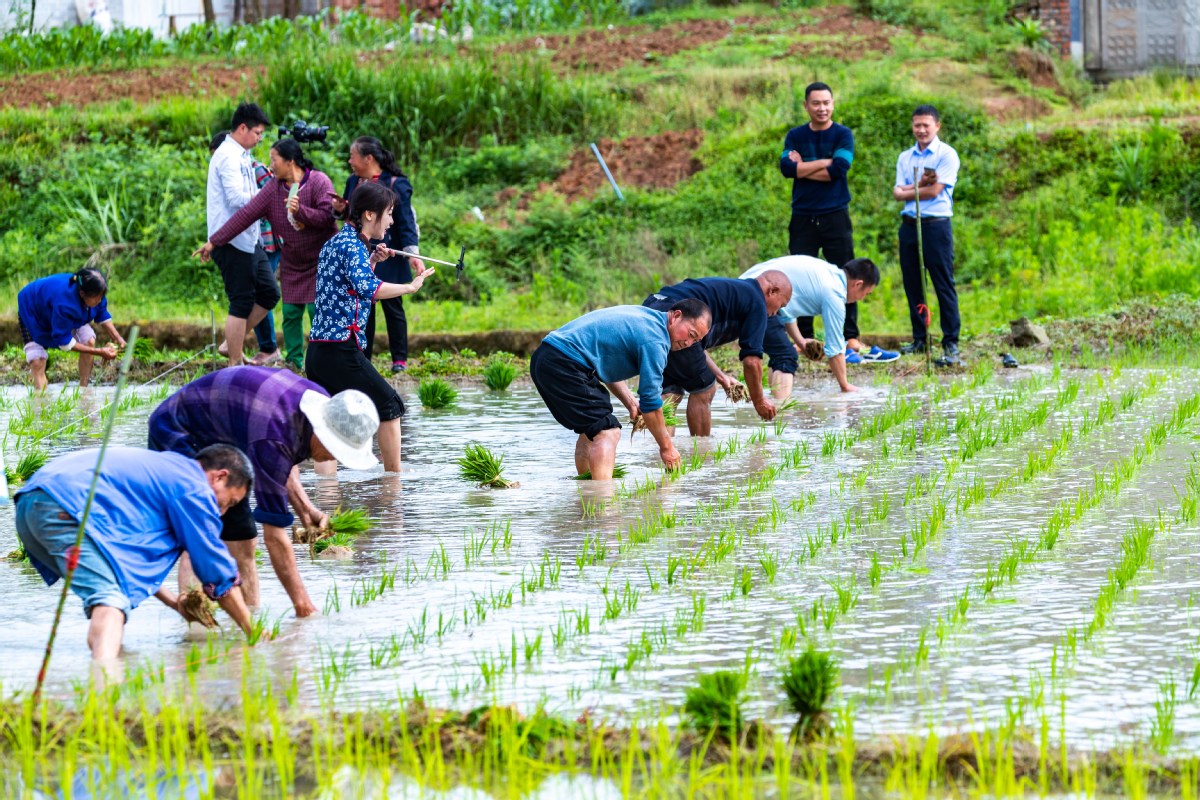Short-video apps offer new chances and perspectives for rural residents


More profits
While many people in the countryside are enjoying the content produced by others on short-video apps, other people, like Liu Jinyin from Sichuan province, have begun generating their own contents and profiting off it.
Three years ago, Liu watched short videos during his spare time on the job as a construction worker and found the videos amusing. These seconds or minutes-long "short films" produced by ordinary people, fell into all types of categories-delicious food, beautiful scenery, jokes and daily life among others. They firmly seized his attention.
After watching thousands of videos and realizing making them was not difficult, he decided to make a few of his own.
What he had not expected was that catching fish, planting crops, feeding pigs and cooking, all the most ordinary things happened in his life, could attract so much attention.
Now the tips and rewards he receives from followers alone can amount to hundreds of thousands of yuan a year, much more than what he earned working at construction sites.
"My father can't believe that I can earn money at home by doing this," he said.
A better-known and more successful example is Li Ziqi, who started shooting short videos about Chinese food and her life with her grandmother in the countryside of Southwest China's Sichuan province in 2015.
After gaining tens of millions of followers on domestic short video platforms, her YouTube channel also reached 10 million followers in April.
Last year, sales of agricultural products and food in her store on Alibaba's Tmall, an online shopping platform in China, exceeded 70 million yuan ($10.36 million).
In August, she expanded her business by opening a factory producing luosifen, a type of Chinese rice noodle originating from South China's Guangxi Zhuang autonomous region, in the region's Liuzhou city.
According to data from iResearch consulting company, commercialization of the short video industry has matured after eight years of development, and overall income for the industry in China is expected to reach 211 billion yuan by the end of this year.
This trend has benefited more rural people, and not only influential video makers like Liu and Li. More ordinary farmers are also seeing encouraging results.
Wang Erlou plants apricots in Taipingbu village in Northwest China's Shaanxi province. He said his high-quality apricots had not sold well until he started using short video apps to promote them.
This year, he tried making short videos and doing livestreaming, in which his 80-year-old grandmother appeared to show internet users how the apricots looked and tasted.
The outcome exceeded his wildest expectations. His online shop earned 20,000 new followers, up from a two-digit number, within a few weeks. He sold 8,000 boxes of apricots worth 250,000 yuan in May and June, the harvest season of the year.
"The power of short videos really amazed me," Wang said.
Sources of knowledge
Apart from bringing fortune, short videos are also sources of knowledge to people living in rural areas, said Liu Yuanju, the researcher in Shanghai.
A report released last year by technology media website 36Kr showed that 65 percent of short-video app users said they wanted to "learn knowledge and techniques on the platforms". That answer was second only to "watching interesting and entertaining contents", which 80 percent of users selected.
According to Liu's observation, many farmers chose to watch short videos that shared tips on improving the performance of agricultural production, such as planting crops and raising livestock.
"Some farmers, especially those of older age, need such knowledge and information. But it might be difficult for them to learn it by reading books or attending lectures," he said. "Comparatively speaking, following the steps taught in short videos is a more relaxing and acceptable option."
In addition, short videos can broaden farmers' vision and reduce the rural residents' "information gap "by teaching them more about the outside world, Liu said.
"In the past, immigrant workers were usually unaware of urban life when they first arrived in the cities from their rural hometowns," he said. "Now, by watching some short videos, they can familiarize themselves with their future





































